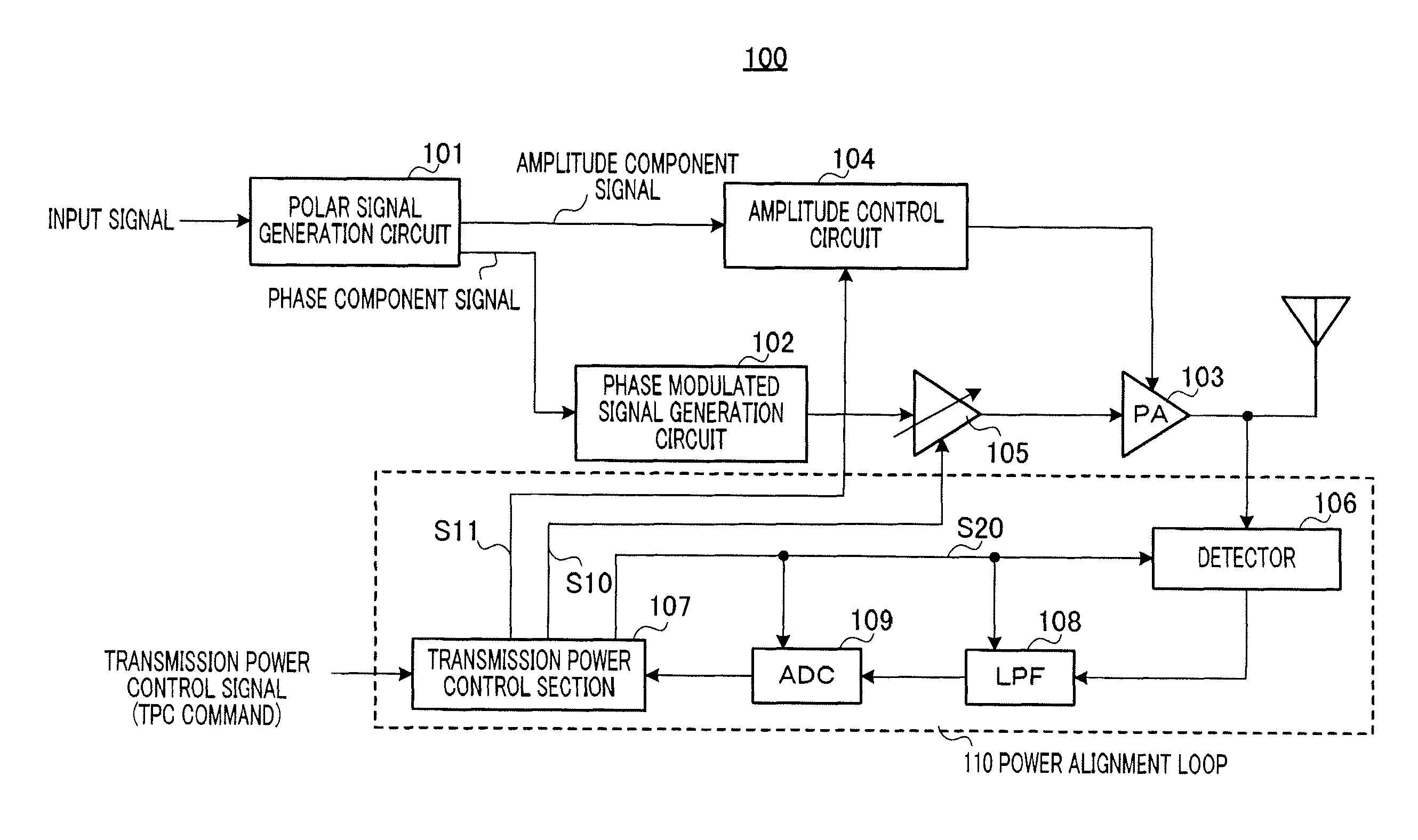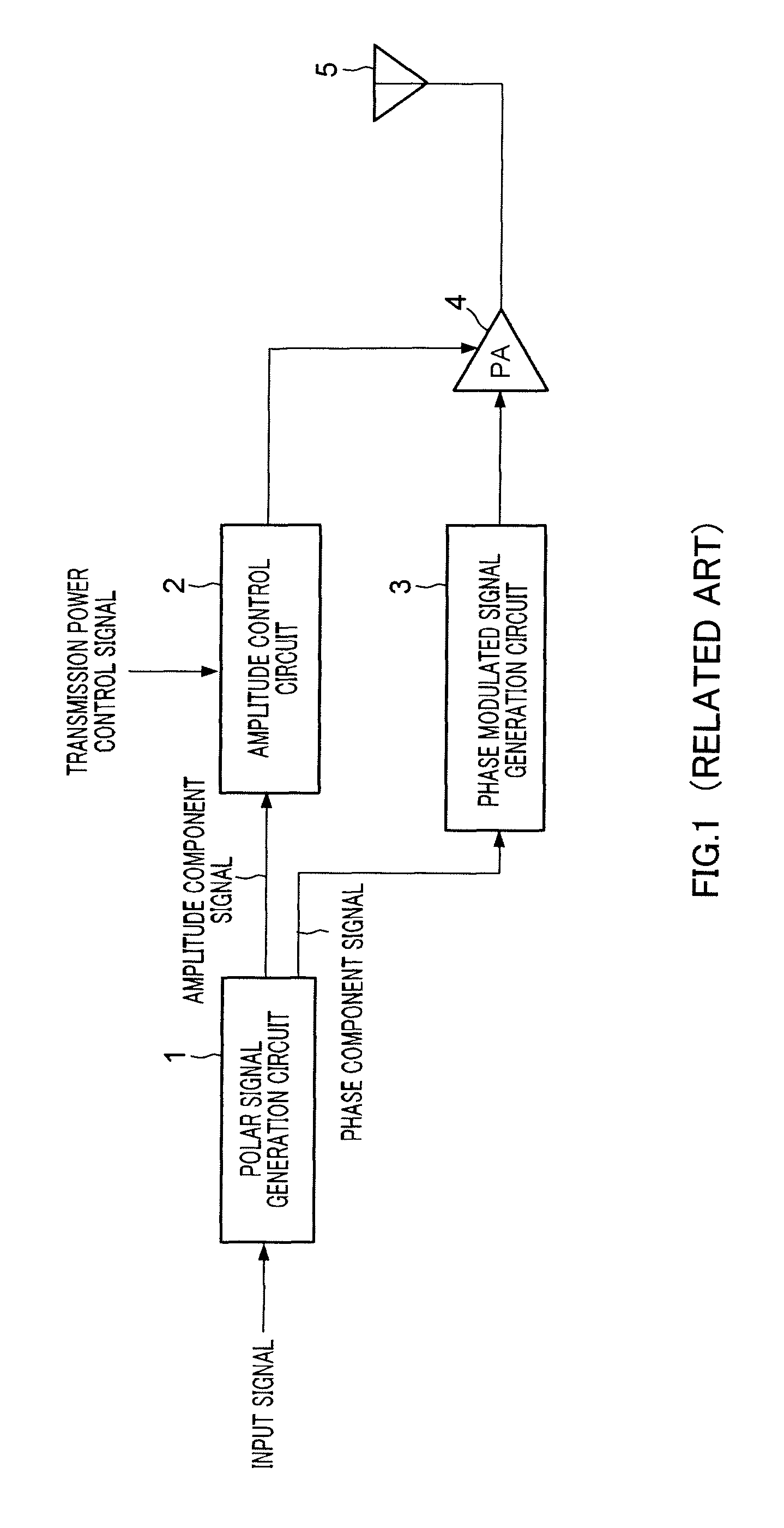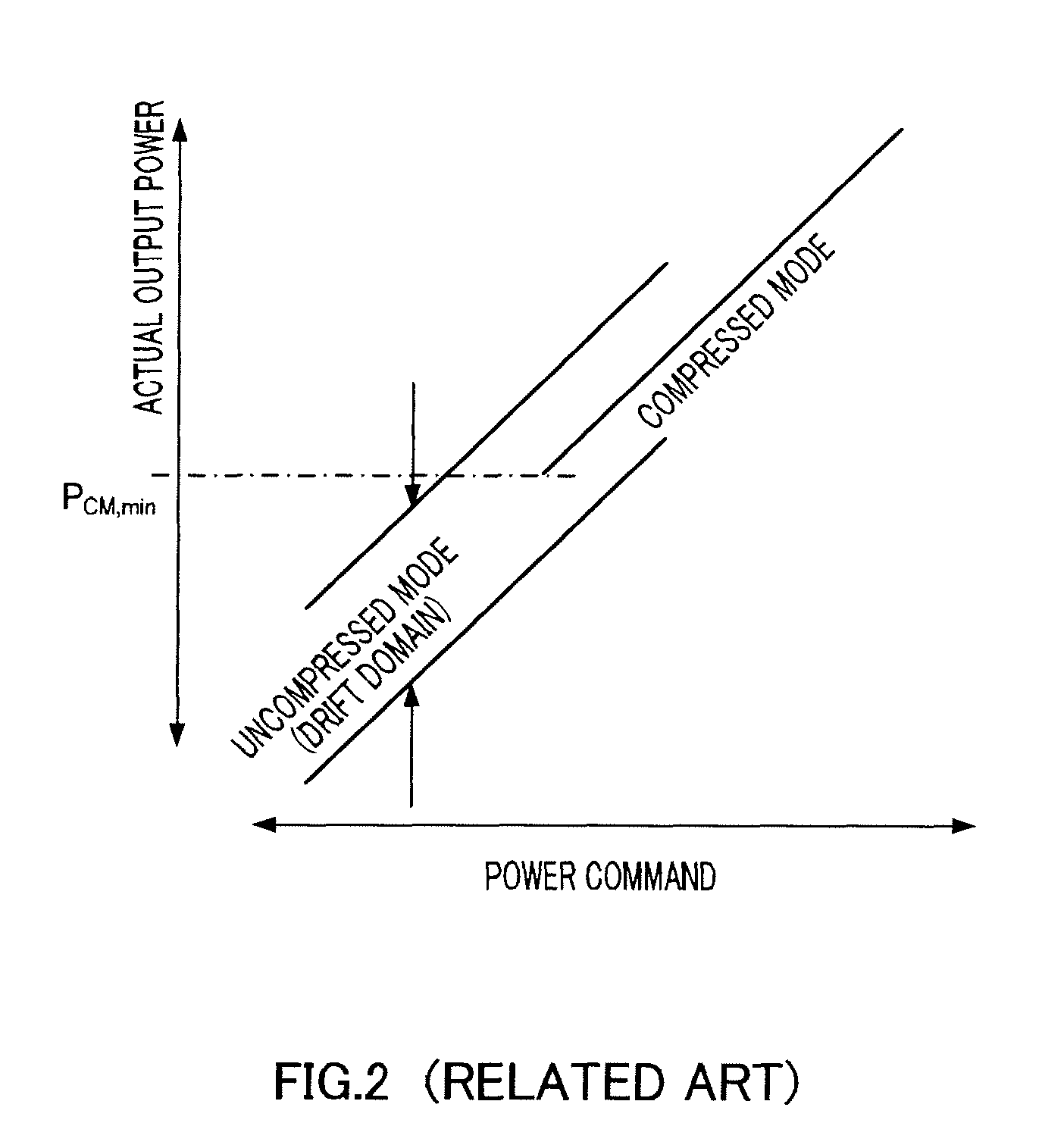Transmission power control method and transmission apparatus
a transmission power and transmission power technology, applied in the field of polar modulation transmitters, can solve the problems of significant transmission power drift, high probability of transmission power drift, and output power in uncompressed mode likely to be discontinuous, so as to improve the accuracy of transmission power control
- Summary
- Abstract
- Description
- Claims
- Application Information
AI Technical Summary
Benefits of technology
Problems solved by technology
Method used
Image
Examples
embodiment 1
[0052]FIG. 6 shows the configuration of polar modulation transmitter 100 according to Embodiment 1 of the present invention. Polar modulation transmitter 100 of FIG. 6 has polar signal generation circuit 101, phase modulated signal generation circuit 102, power amplifier (PA) 103, amplitude control circuit 104, variable amplifier 105 formed with a variable gain amplifier (VGA) and / or an attenuator, and power alignment loop 110.
[0053]Power alignment loop 110 has detector 106 that detects output power of PA 103, low-pass filter (LPF) 108, analogue-to-digital converter (ADC) 109 and transmission power control section 107.
[0054]Polar signal generation circuit 101 generates amplitude component signals and phase component signals from the input signals. To be more specific, polar signal generation circuit 101 operates according to the input signals from spreading section 110, and generates envelope component signals (i.e. amplitude component signals) containing amplitude information of th...
embodiment 2
[0107]The hardware configuration diagram of the transmission apparatus according to Embodiment 2 of the present invention is the same as in FIG. 6, and so repetition of explanation will be omitted.
[0108]Transmission power control section 107 forces the mode change using transmission power control value ΔP=0, before the symbol boundary where transmission power control value ΔP is set based on transmission power control signals, detects the amount of drift in output power of PA 103 before and after mode changes using average value Pcur before the symbol boundary where transmission power value ΔP is set and before mode changes, and average value Ptar before transmission power value ΔP is set and after mode changes, and, after transmission power control value ΔP is set, corrects target transmission power Ptar—set based on transmission power control value ΔP and the amount of drift.
[0109]FIG. 11 is a flowchart illustrating the operation of polar modulation transmitter 100 when current mo...
embodiment 3
[0122]FIG. 13 shows a configuration of polar modulation transmitter 200 of this embodiment, and, in this figure, the same components as in FIG. 6 will be assigned the same reference numerals.
[0123]Polar modulation transmitter 200 has spreading section 210 and averaging section 220 in addition to the configuration of polar modulation transmitter 100 of FIG. 6.
[0124]Spreading section 210 spreads input signals by spreading codes, and outputs the signals to polar signal generation circuit 101. When generating, for example, an HSUPA (High Speed Uplink Packet Access) signal, spreading section 210 multiplies the DPDCH signal, DPCCH signal, HS-DPCCH signal, E-DPDCH signal, and E-DPCCH signal by spreading codes Cd, Cc, Chs, Ced, and Cec, respectively, adjusts gain factors Beta ratio c (Bc), Beta ratio d (Bd), Beta ratio hs (Bhs), Beta ratio ed (Bed), and Beta ratio ec (Bec), generates an HSUPA signal, and outputs the generated HSUPA signal to polar signal generation circuit 101.
[0125]Averagi...
PUM
 Login to View More
Login to View More Abstract
Description
Claims
Application Information
 Login to View More
Login to View More - R&D
- Intellectual Property
- Life Sciences
- Materials
- Tech Scout
- Unparalleled Data Quality
- Higher Quality Content
- 60% Fewer Hallucinations
Browse by: Latest US Patents, China's latest patents, Technical Efficacy Thesaurus, Application Domain, Technology Topic, Popular Technical Reports.
© 2025 PatSnap. All rights reserved.Legal|Privacy policy|Modern Slavery Act Transparency Statement|Sitemap|About US| Contact US: help@patsnap.com



